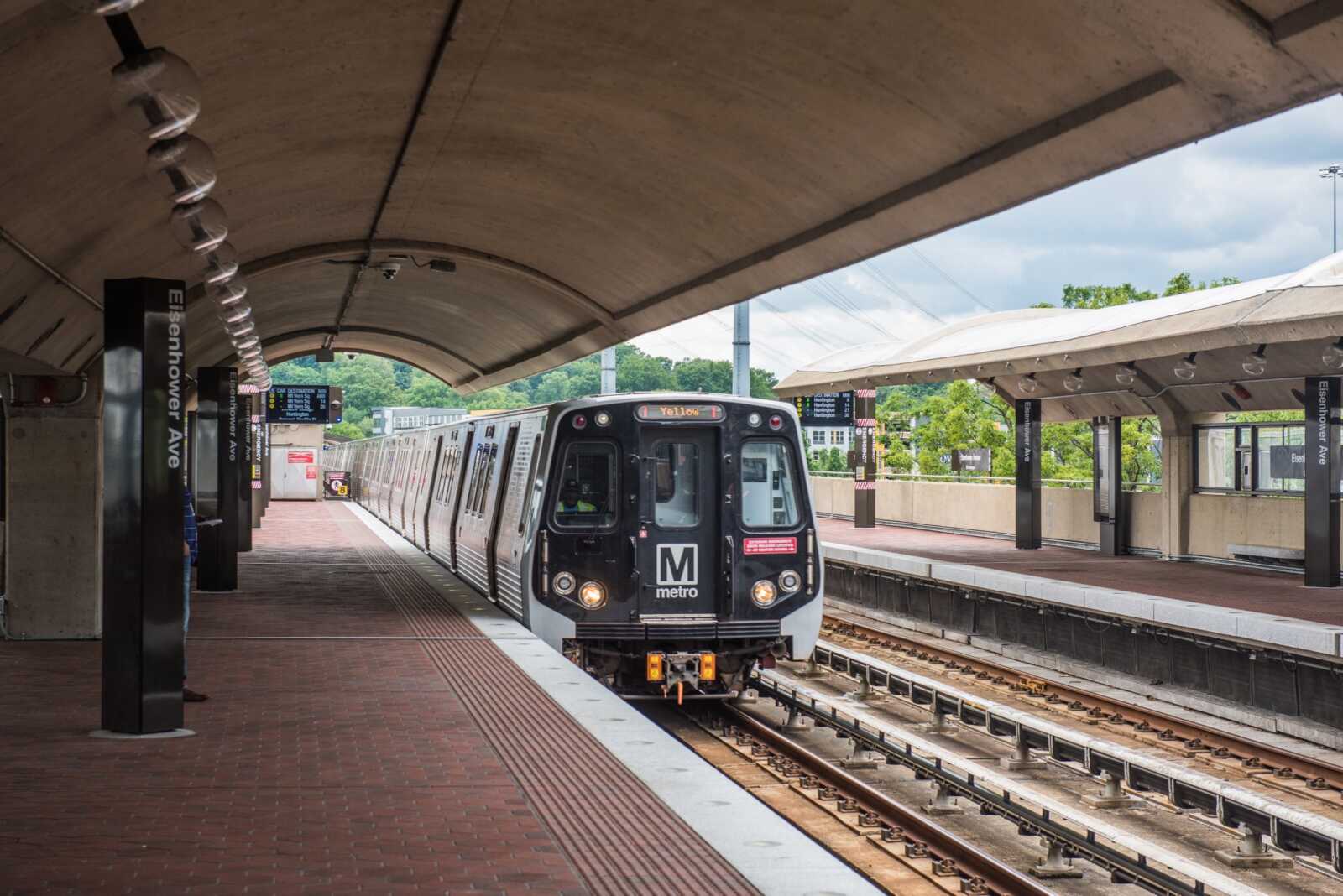
Metro has taken all 748 of its 7000-series railcars out of service pending further inspections, and they will not return to service until they are deemed safe. The 7000-series trains make up approximately 60 percent of Metro’s railcar fleet. Without these railcars, Metro is able to operate significantly fewer trains than normal. Service on all lines will operate every 30 minutes today, Monday, October 18. All trains will operate as six-car trains.
Reduced Metrorail service is expected to continue until at least Sunday, October 24, as the investigation into the October 12 derailment continues. Beginning tomorrow, trains will operate every 15 minutes on the Red Line and will continue to operate every 30 minutes on all other lines. Silver Line trains will operate between Wiehle-Reston East and Federal Center SW only.
As Metro continues to work closely with the Washington Metrorail Safety Commission and NTSB and more information develops, we will update the public about service.
Actions Taken
WMATA started working with NTSB and the Washington Metrorail Safety Commission last week to determine the cause of the Blue Line derailment at Arlington Cemetery; that investigation is still ongoing.
Because safety remains our number one priority, we have removed all 7000-series railcars from service to properly inspect the fleet.
These actions are being taken out of an abundance of caution.
- We understand the impact this decision has on transportation for the DMV area (National Capital Region). We apologize for this reduction in service and the inconvenience this is causing our customers.
- As customers experience delays and full rail cars during their commute, please know we have made a concerted effort to improve airflow. Face masks continue to be required throughout the system, and Metrorail cars recycle the air approximately every three minutes
- We want the public to know we are committed to their safety and will continue to release updates as we receive them.
Frequently Asked Questions
Recent Stories
In December 2022, we let you know that Dunkin’ is continuing its massive expansion across the country and in MoCo, with an upcoming location coming to the Traville Village Center…
17th Annual Kensington Day of the Book Festival
Now in its 17th year, the Kensington Day of the Book Festival is a family-friendly street festival featuring 150+ renowned authors, poets, and literary organizations. Enjoy live music on five stages, special guest speakers, military veteran writers and comedians, poetry readings, cookbook demos, children's program, and much more.
Admission is free, and attendees will also be able to explore a marketplace of books and food offerings from local vendors.
Not your average book festival! This festival offers something for everyone!
17th Annual Kensington Day of the Book Festival
Sunday, April 21, 2024, 11am-4pm (held rain or shine!)
Howard Avenue, Kensington, MD 20895
www.dayofthebook.com
Instagram: @kensingtonbookfestival
Contact: Elisenda Sola-Sole, Festival Director
301-949-9416 (text preferred)
FEST OF SPRING Caribbean Wine Food & Music Festival
Get ready to experience the vibrant colors, tantalizing flavors, and infectious rhythms of the Caribbean at the FEST OF SPRING Caribbean Wine Food & Music Festival! Hosted by RHU LLC, this exciting festival is set to take place on May 18, 2024, at the picturesque 16700 Barnesville Rd in Boyds, MD.
Step into a world where the Caribbean spirit comes alive! From 12:00 PM onwards, immerse yourself in a sensory journey that celebrates the unique culture, cuisine, and music of the Caribbean. Whether you're an African American, a Reggae or Soca music enthusiast, a wine lover, or part of the vibrant Caribbean diaspora, this festival promises to delight and captivate you in every way.
Let the enticing aromas of mouthwatering Caribbean dishes tantalize your taste buds. Feast on traditional delicacies prepared by expert chefs, showcasing the rich and diverse culinary heritage of the Caribbean. Indulge in flavorful jerk chicken, succulent seafood, and delectable plantain dishes that will transport you straight to the islands.
Accompanying the culinary extravaganza is a carefully curated selection of premium wines, ensuring the perfect pairing for your palate. Sip on fine wines from renowned vineyards, each sip a reflection of the Caribbean's vibrant spirit. Discover new flavors, expand your wine knowledge, and savor unforgettable moments with every glass.
As the sun sets, get ready to groove to the infectious rhythms of Caribbean music. Feel the pulsating beats of reggae, soca, dancehall, and calypso, moving your body to the lively melodies. Live performances by talented musicians and performers will keep the energy high, ensuring a night of unforgettable entertainment.
Don't miss this opportunity to embrace the Caribbean spirit and celebrate the arrival of spring in style! Tickets are available on AllEvents, so secure your spot today. Join us at the FEST OF SPRING Caribbean Wine Food & Music Festival, where cultures collide and unforgettable memories are made.
LIVE PERFORMANCES By: CULTURE Feat. Kenyatta Hill, EXCO LEVI, IMAGE BAND, RAS LIDJ REGG'GO with Special Guest SUGAR BEAR FROM E.U. & MORE! & MORE!
MUSIC By: DJ ABLAZE, DJ SMALLY & NAJ SUPREME
2 NIGHT Camping packages available: RV/CAMPER $200 | TENTS $150 Starting on Friday May 17 @ 5pm | 30 RV SPACES | 30+ TENT SPACES
KIDS 12 & UNDER FREE!!!






